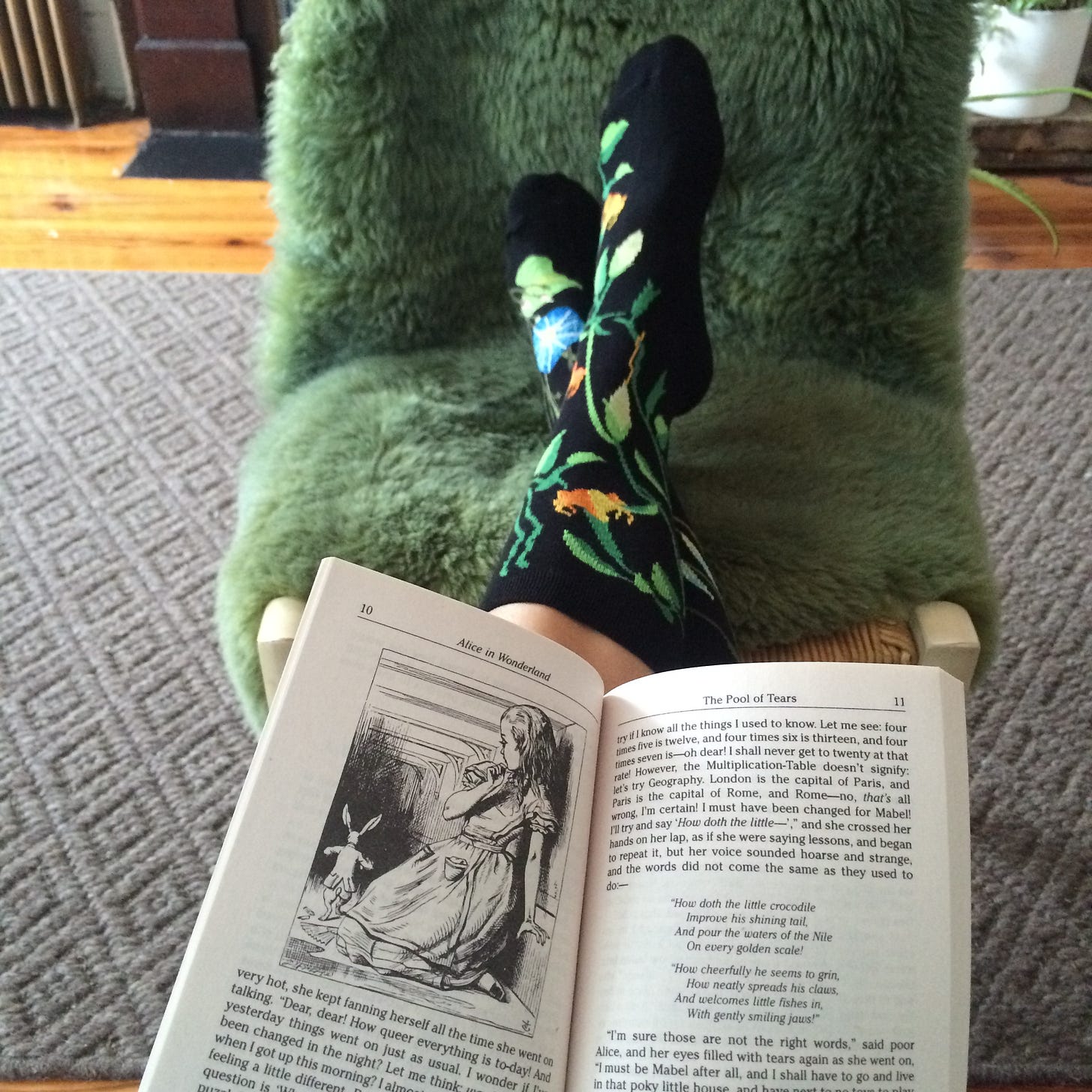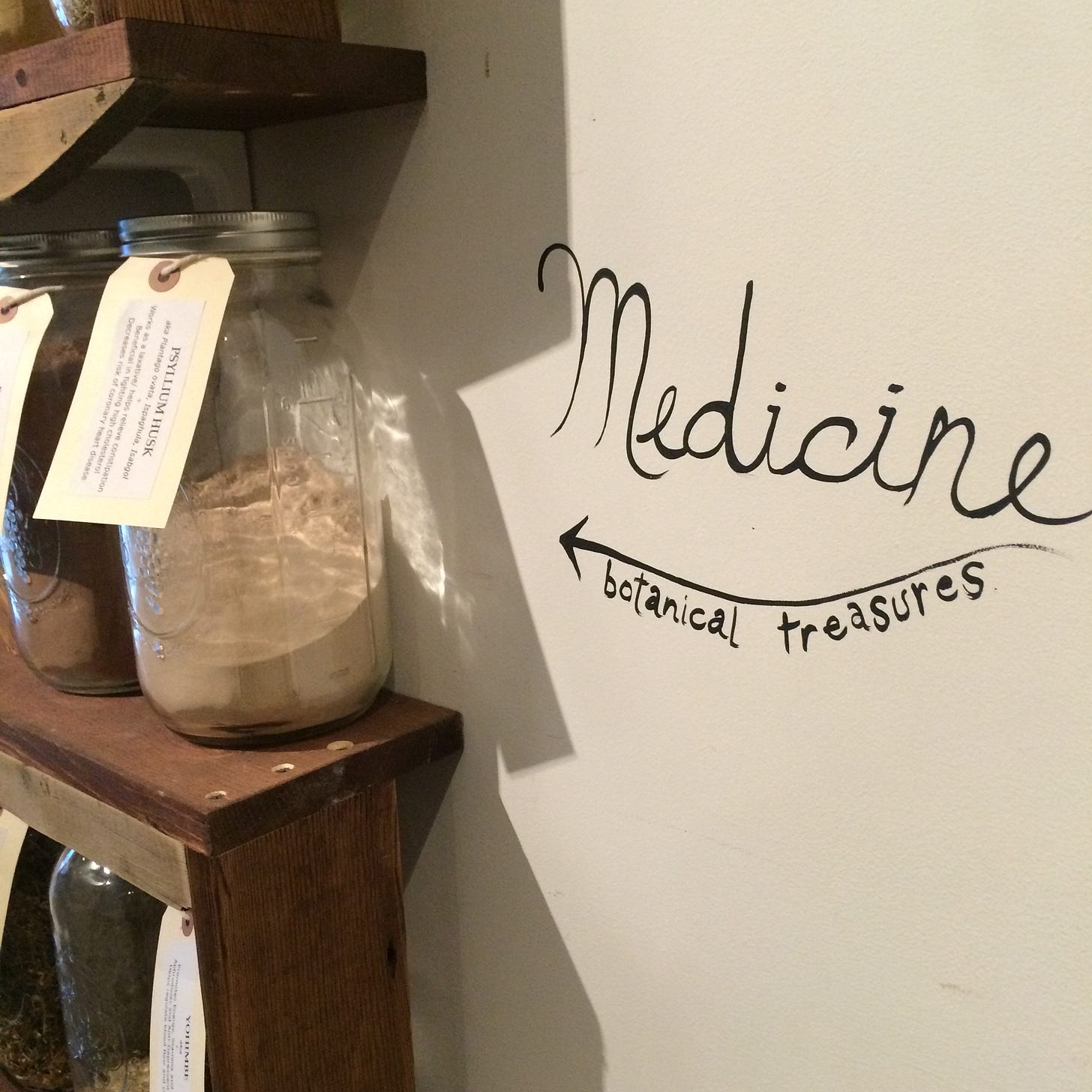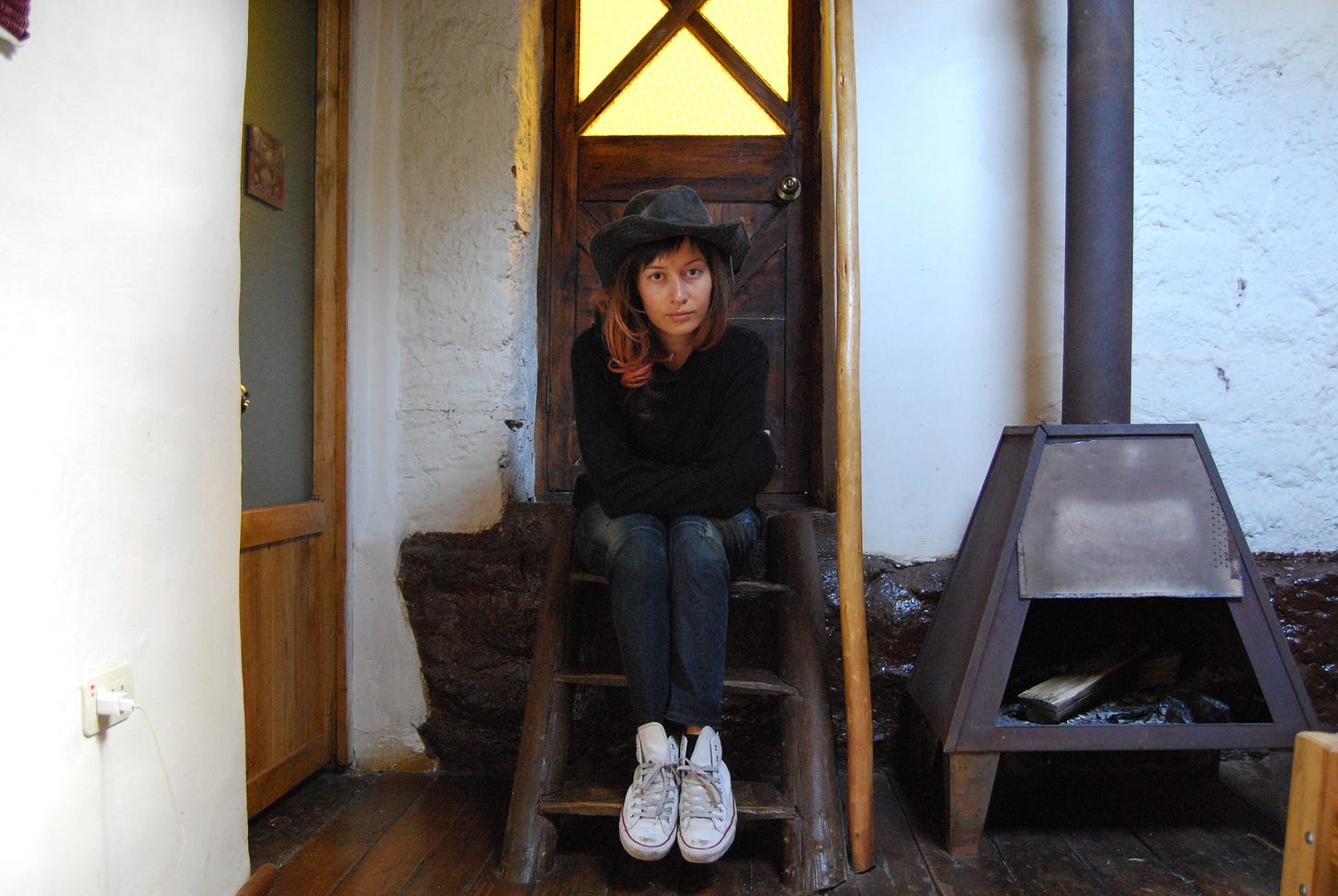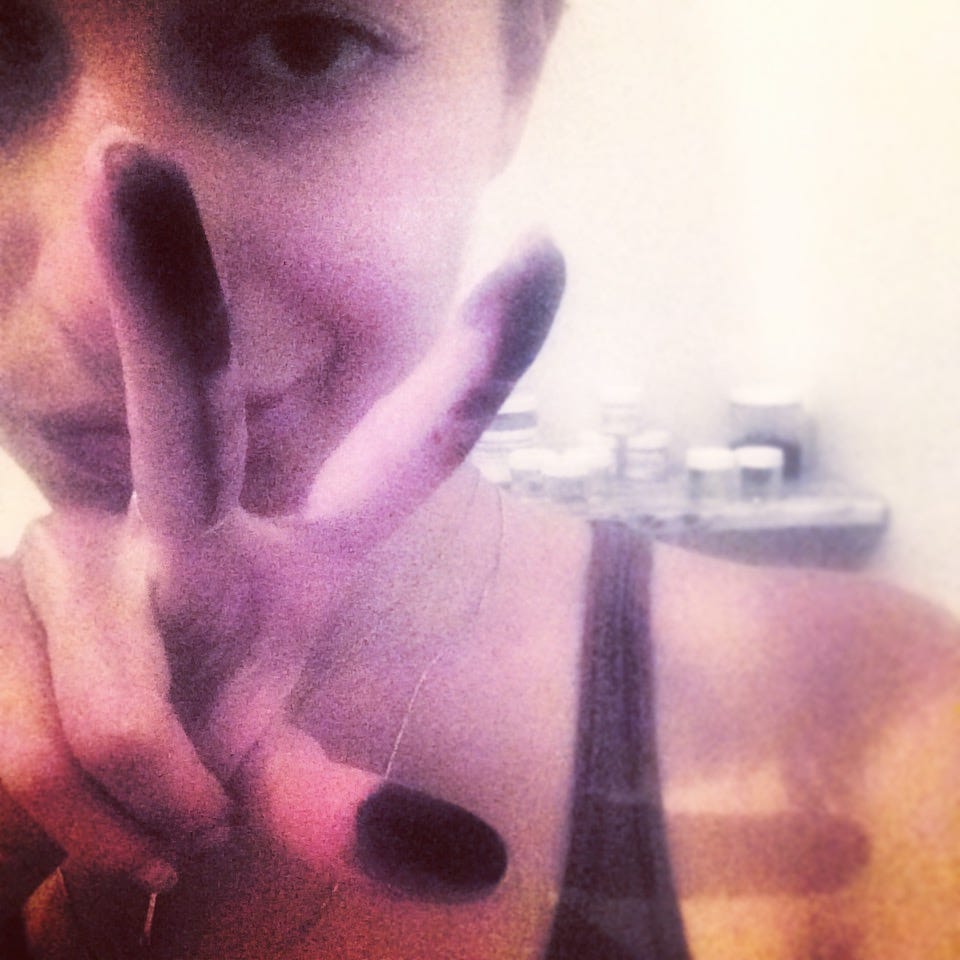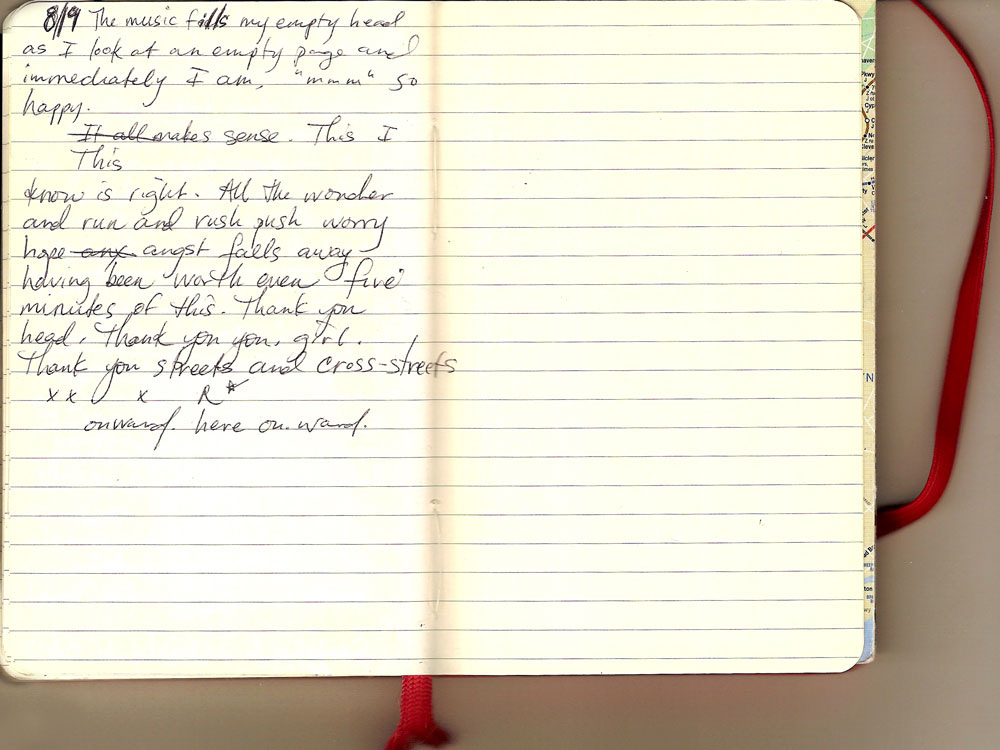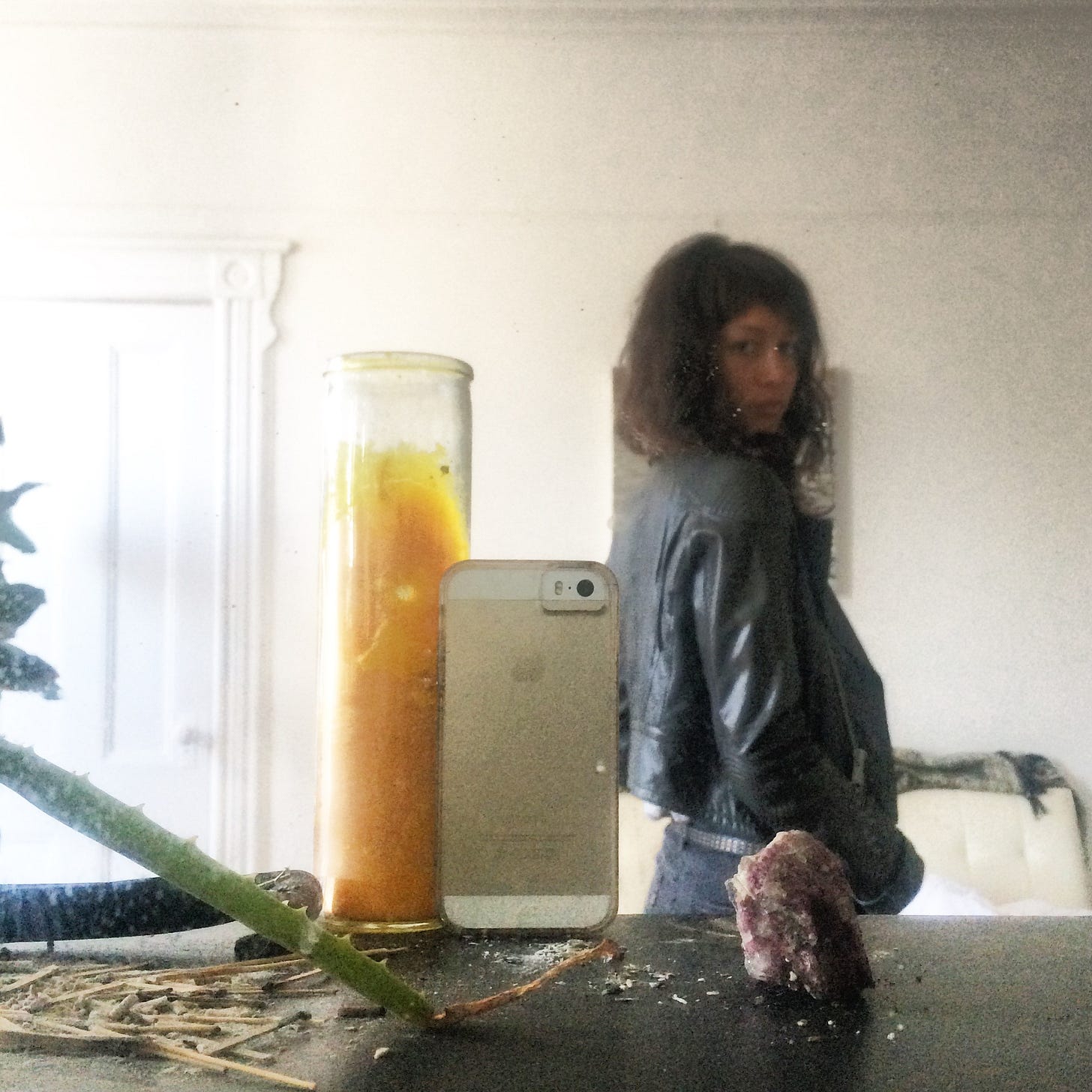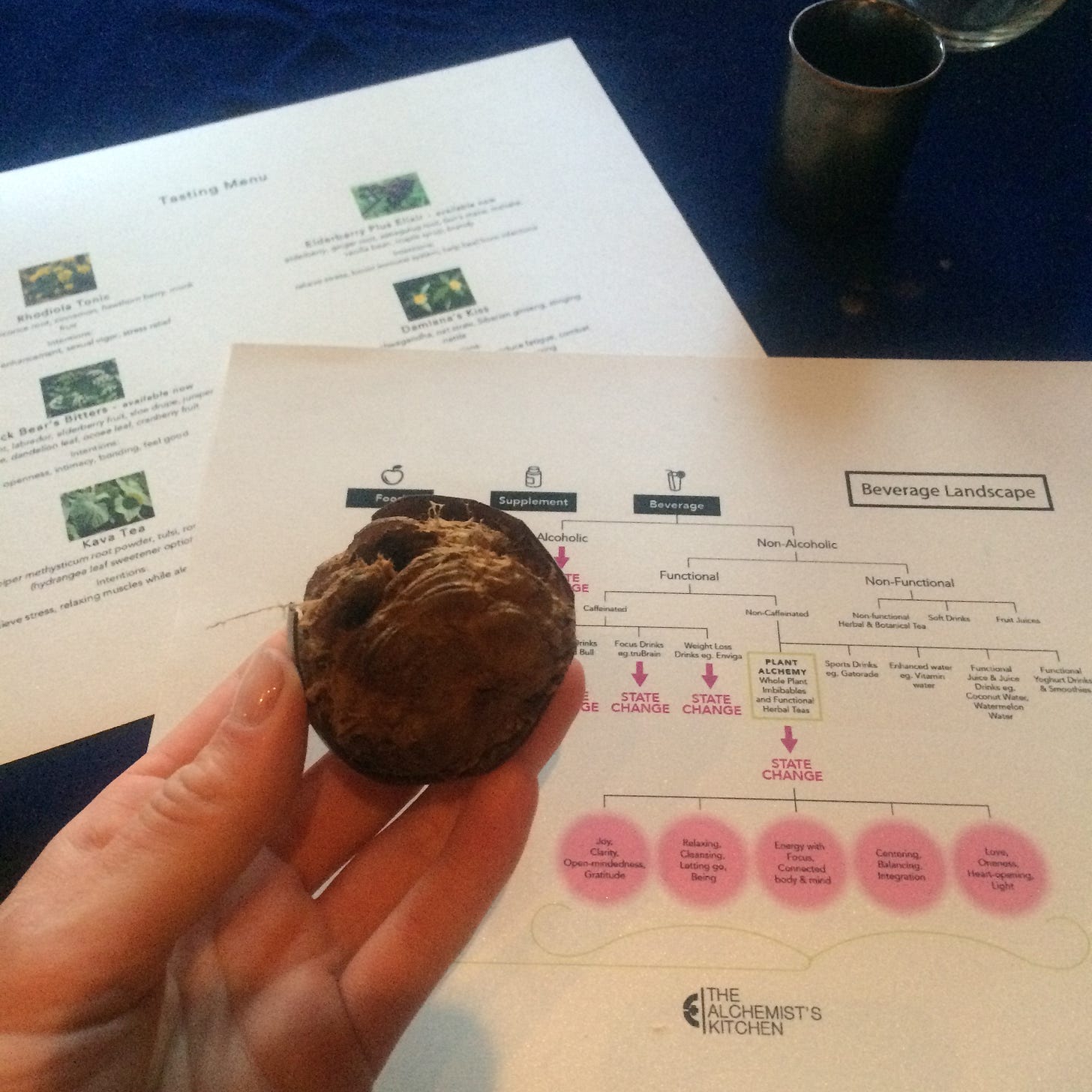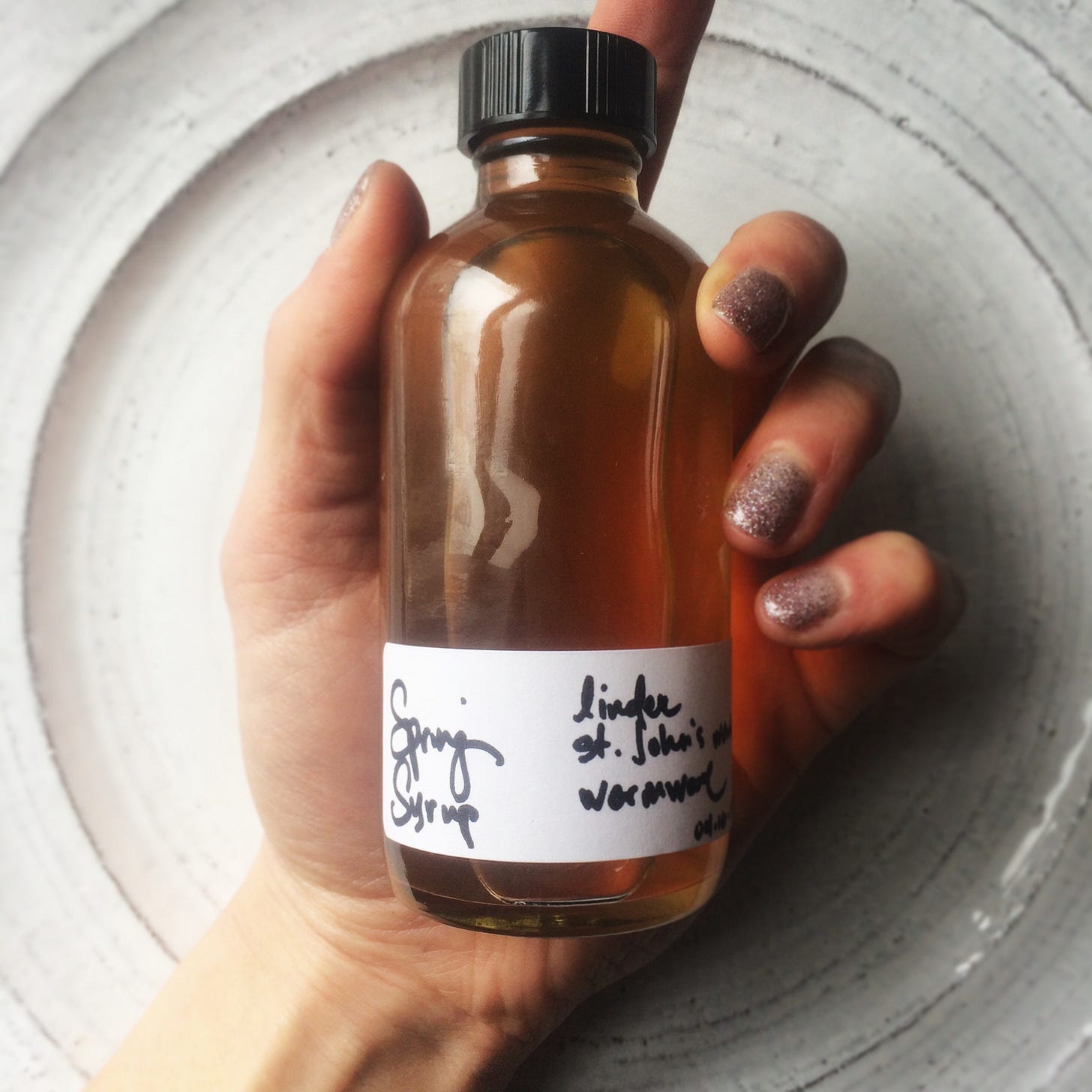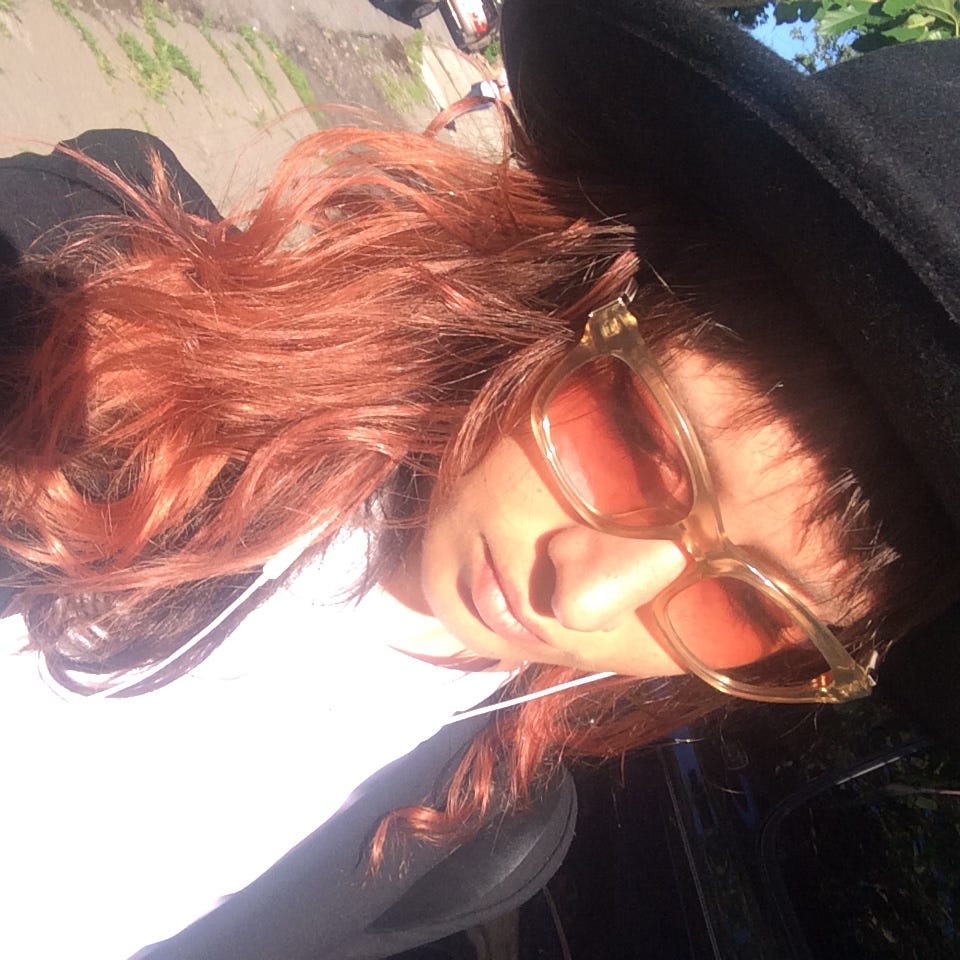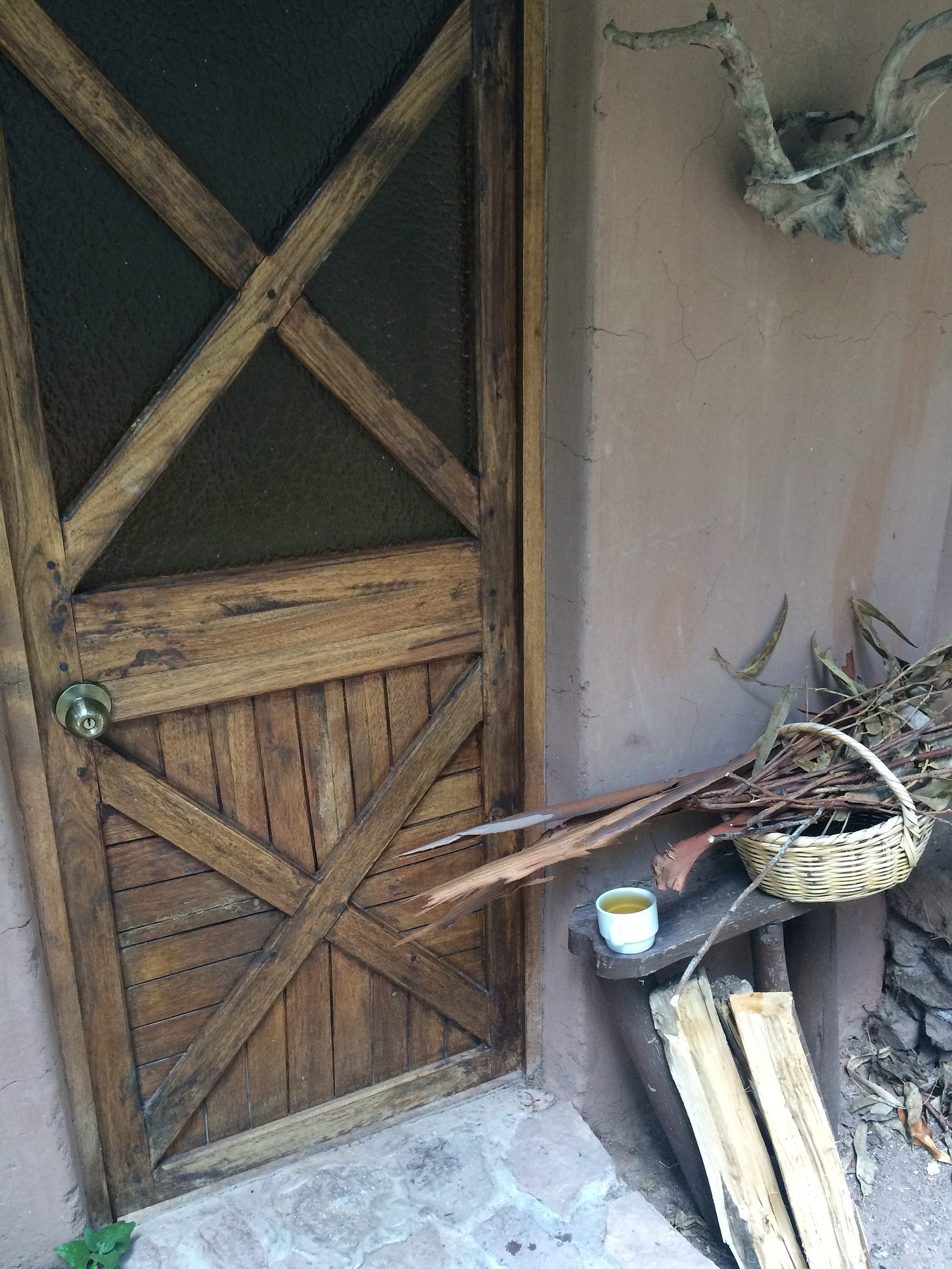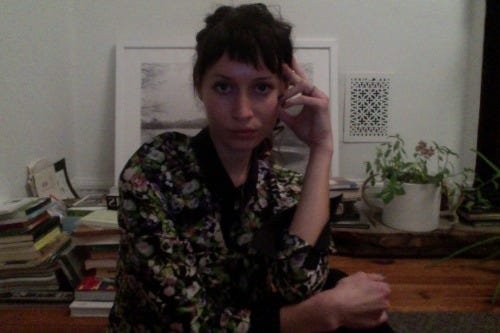Essay | Finding Ourselves When We Seek & Health As Relationship With Our Nature
The roots, weeds and mycelial network of my herbalism origins
I don’t remember when I first encountered the idea of self actualization, but I immediately wanted it. It sounded so advanced, so complete, so impossible. And I live to strive.
The phrase was definitely one of the first items on my list of Things I’ve Known That I’ve Learned. That’s a Google Doc list of stuff that I’ve known before I’ve learned it; things I’ve felt in my belly, or believed in, before I discovered the words to describe them.
Here’s a screenshot of the list from 2016, with an update added in 2020:
Did you know that Supernatural started as a blog? The first step I took in making this project real was by writing about things like this. It didn’t begin as herbalism explicitly, unless you consider the exploration of the human experience herbalism, which I actually do. So, in that sense it’s always been about herbalism, I just didn’t know it at the time. This broadness of the definition of herbalism is also why that’s the title for what I do that stuck. (And because I did triple-down on the study of herbs specifically, but we’ll get to that later on.)
Early on, I wrote about what I was studying, experimenting with, learning about, and generally in the weeds of. Topics included experimental nutrition, fasting, and all varieties of energetic healing — altered states of consciousness, biohacking, bodywork, spirituality of all kinds. Anything I could experience directly, I did. I tried to try it all. My weekends were spent in shamanism immersions with evenings in every hands-on workshop, far-out talk, or movement mingling I could find. Bless NYC for its endless supply of esotericism, and the early days of wellness for a buffet of modalities to sample.
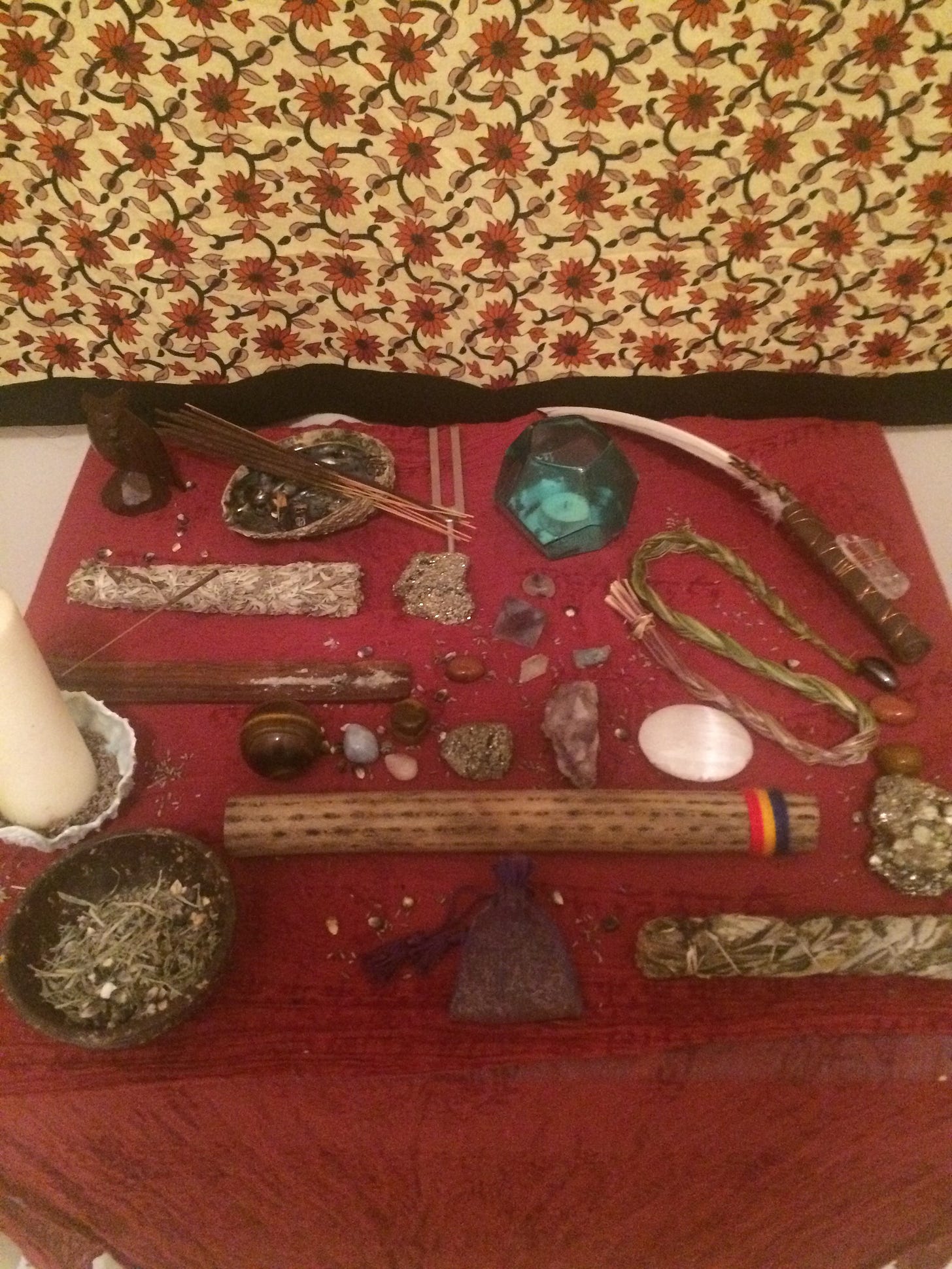
From there, I started traveling for deeper exploration and spent solo retreats in Ecuador, Honduras, Peru, Guatemala, Hawaii …
Here’s a PDF of one of my early blog posts (2015) including excerpts from a podcast with ethnobotanist and psychonaut Terrence McKenna. He’s poeticizing direct experience, metaphysical philosophy and psychedelics in his charismatic mind-bending way. (You can listen to his whole talk here.)
Metaphysics is the branch of philosophy that studies the fundamental nature of reality, the first principles of being, identity and change, space and time, causality, necessity, and possibility. — Wikipedia
This is the stuff I’ve been trying to put my finger on for as long as I can remember. As a kid, I was pretty certain it was possible to bend spoons with my mind like Matilda and I was determined to learn how to do it. There were other dimensions out there, I was certain. And if it turned out that there weren’t, I wanted to know that too.
In terms of things we know before we “know” them, psychologist Abraham Maslow’s concepts of self actualization and our hierarchy of needs resonated with me so early in life that it now feels pretty impossible for me to untangle the origin of my own ideas about these topics from his. I feel that way about a lot of humanist and existential psychology. Is it that it resonates with my own nature or that I absorbed the ideas at enough points in my early inquiries that when we met later in life, they rang true? Or, is our nature actually the accumulation of resonant frequencies acquired as we vibrate our way through life? I believe it’s a bit of both and more. We find what we seek and nature is a seeking force.
From my Knew/Learned list in 2017, about plant sentience: “... the continuous striving of the plant to its other without return to itself, the as-yet unexplored possibilities of the vegetal soul and its countless permutations in all living beings — these are but a few indications of the essential incompletion (and, hence, the vivacity, the unrest, and the non-identity) of a life compatible with plant-thinking.” — Plant-Thinking A Philosophy of Vegetal Life, Michael Marder. (Marder’s books on plant consciousness are phenomenal. He also writes about phenomenology.)
Let’s have a little more: “Symbolically then vegetal existence could be seen as a metaphor for vivacity itself: the germination of a plant striving toward the light of the sun happens simultaneously with its roots burrowing ever deeper into the darkness of the earth: While the ‘plant’ sprouts, emerges, and extends itself into the open, it simultaneously goes back into its roots in that it fixes them in the closed and takes its stand. The self-unfolding is inherently a going-back-into-itself. The plant’s (and thought’s) [uprooting] and total exposure to light make it perish, as does its isolation from the sun’s luminous warmth. The fragile balance of light and darkness, of the open and the closed, required for the plant’s biological life is equally applicable to its persistence as a living figuration of thought; if we are to ‘think the plants,’ we must not shy away from darkness and obscurity, even as we let them appear in their own light, the one emanating from their own kind of being.” — Plant Thinking
Articulations like these — Marder’s, Maslow’s, McKenna’s, and so many others whose names don’t start with M — braided things I knew into a single fuse and lit it. This exploded my deep-self exploration into what eventually became the business of Supernatural. All of the threads I’d been following for all of those years revealed themselves to be the mycelial network of my self. This is the forest floor that what I teach grows from. This is my herbalism. And this is why I can’t give you a simple answer to questions about when I started studying herbalism, or when I first knew I wanted to “be” an herbalist, or when I became one.
It’s like that sort of silly but very true line about luck being what happens when opportunity meets preparation. When we seek to know our nature, and we nurture it, life emerges. Life that is a striving toward.
Lately, I’ve been considering what it means to define health in the context of realization — that wellbeing is a constant progression of increasing intimacy with our selves.
We are never perfectly healthy, and very few of us are actually enlightened. As my friend Laura wrote recently, “The one thing I know for sure is that all of us are living, and all of us are dying.” And that’s the point. The point is the process, the potential, the realization. Balance is always in motion, the inward and outward light and darkness a pendulum, and ever — as my motto was for decades — onward.

